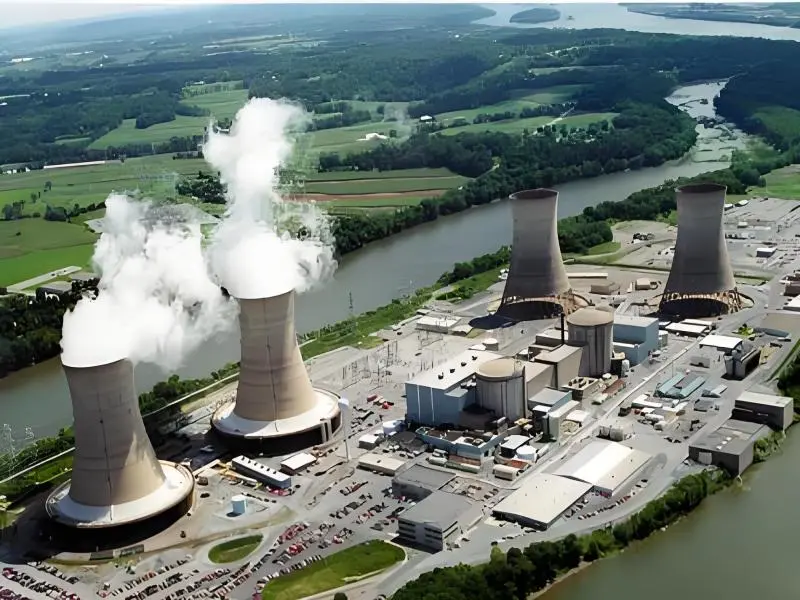- Constellation Energy and Microsoft aim to restart Three Mile Island nuclear plant, seeking energy for expanding AI data centres.
- Regulatory hurdles, supply-chain issues, and local opposition may slow the integration of nuclear energy for tech data centres.
OUR TAKE
Tech companies are turning to nuclear power to fuel their data centres for AI applications, with Constellation Energy and Microsoft’s plan to revive Three Mile Island showcasing the growing importance of sustainable energy sources in meeting escalating power needs for AI infrastructure. However, the path to integrating nuclear power into big tech’s infrastructure is fraught with challenges that could delay its widespread adoption.
–Rebecca Xu, BTW reporter
What happened
Constellation Energy and Microsoft are planning to relaunch the Three Mile Island nuclear plant to support the rising power demands of AI data centres. This initiative comes against a backdrop of predictions by the U.S. Energy Information Administration (EIA), which estimates a modest increase in national power generation capacity of 2.4% to 2.7% by the end of the decade. However, the demand from data centres, crucial for supporting AI operations, is expected to more than double within the same timeframe, posing a significant challenge to the energy market.
“Nobody has done this before,” said Kate Fowler, global nuclear energy leader for Marsh, an energy insurance broker and risk adviser, about Three Mile Island’s attempted restart. “There’s going to be challenges that pop up.”
Also read: US calls on big tech to help evade online censors in Russia, Iran
Also read: Talen Energy offers up nuclear-powered crypto mining campus stake, sources say
Why it’s important
The decision to harness nuclear energy is a response to the pressing need for a reliable and substantial power source. Yet, the path forward is complex. The use of nuclear energy to fuel the tech industry’s infrastructure is not without its obstacles. Regulatory hurdles must be navigated, including obtaining necessary permissions from the U.S. Nuclear Regulatory Commission. Additionally, the supply chain for nuclear energy must be assessed for potential disruptions, especially in light of global geopolitical tensions that have previously impacted the nuclear fuel market.
The collaboration between Constellation Energy and Microsoft represents a pioneering effort to tackle the energy demands of AI. However, it is just one of many nuclear-to-tech deals in the pipeline. As more tech companies seek to secure large-scale, low-carbon energy sources, the industry will need to confront the unique set of challenges associated with nuclear power. From navigating the regulatory landscape to winning public support and ensuring the supply chain’s resilience, each step will be vital in determining the success and feasibility of nuclear energy as a sustainable solution for powering the future of AI and data centres.

